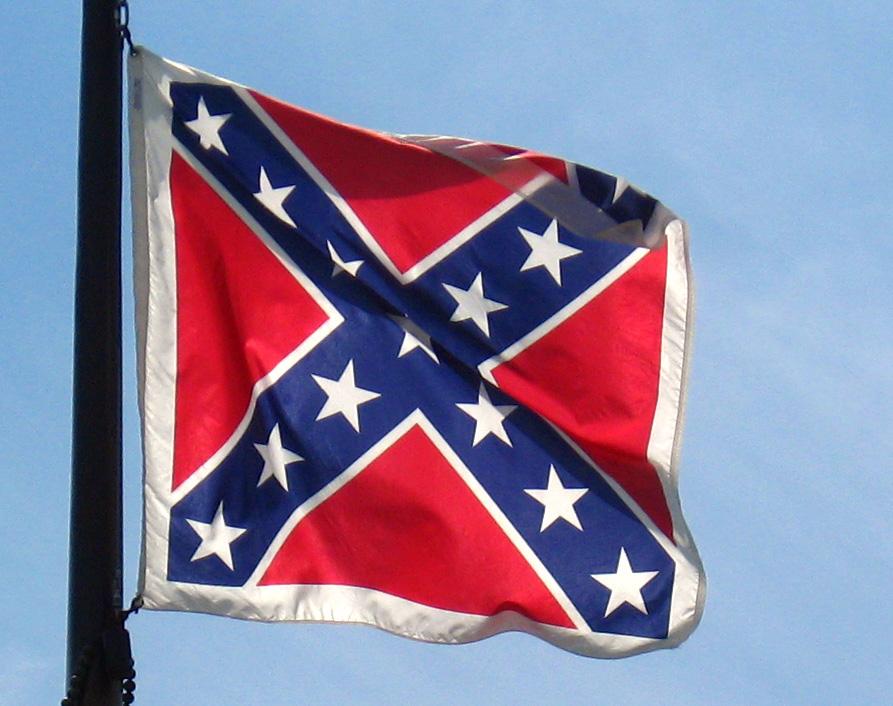The U.S. Supreme Court heard arguments Monday in Walker v. Sons of Confederate Veterans, a debate over — you guessed it — the use of the Confederate flag.
The First Amendment is something that gets tossed around, stretched thin and bent just a little bit quite often in the Supreme Court, and this case is no exception. The organization Sons of Confederate Veterans sued the State of Texas over its decision to prohibit the non-profit organization from making a license plate featuring the Confederate flag. The case is about whether or not the State of Texas refuse to print these license plates without infringing on the group’s freedom of speech.
The case’s origins go back to 2009, when the SCV submitted their personalized license plate design idea to the Texas Department of Motor Vehicles. The DMV board rejected it twice on the grounds of it being offensive, according to SCOTUSblog. After the group’s design was turned down for a second time, SCV decided to sue.
Five federal appeals courts have all ruled in favor of SCV, according to SCOTUSblog, including the U.S. Court of Appeals for the Fifth Circuit. Some of the SCV’s unlikely allies in the case include the American Civil Liberties Union and Americans United for Separation of Church and State. Likely allies include various anti-abortion groups.
The State of Texas’s argument is that license plates are government property and therefore can be regulated as the government chooses. The First Amendment ensures that the government can’t interfere with the free speech of individuals, but the government can make its own distinctions on its own “speech,” including license plates. A license plate is government property, not just something like a bumper sticker, which the driver buys themselves and puts on their own car.
As it is, Texas already does a lot to celebrate its Confederate history. They celebrate Confederate Heroes Day every January, and some monuments on the grounds of the Capitol Building in Austin have Confederate flags drawn into the marble of the statues. But they’re saying that the license plates are taking it a step too far.
The personalized license plate business is huge in Texas, with the industry bringing in $17.6 million last year. Texas offers 350 varieties of specialty license plates, including pro-life plates, Boy Scouts plates and relevantly, a license plate commemorating the Buffalo soldiers. The Buffalo soldiers were black regiments that fought against Native Americans in the 19th century. That license plate design was approved the same day the Texas DMV rejected the SCV’s design.
James George Jr., a lawyer who served as a law clerk to Supreme Court Justice Thurgood Marshall, spoke to the Associated Press on behalf of the SCV.
“I just don’t think the government can discriminate based on content,” he said.
And in fact, in the 1977 Wooley v. Maynard ruling, the Supreme Court ruled that New Hampshire could not force a resident to use the state’s motto, “Life Free or Die,” on a license plate. In its ruling, the Court ruled that the state could not force people to “use their private property as a ‘mobile billboard’ for the State’s ideological message,” thanks to the First Amendment. The SCV is citing that ruling in their arguments.
Now, we as journalists are about to say something that should never come out of the mouths of journalists, but we must say anyway: there are limits to free speech.
We know, sacrilegious. But we have to side with Texas here. License plates are government property, and they don’t have to respect your free speech on something that’s not yours. You can’t put a curse word on a license plate, so if Texas feels this speech is harmful to the state, residents shouldn’t be able to print that either.
It would be one thing if Texas were trying to ban Confederate flags in general — which they would of course never do — but because this is government property, they can do what they want. It basically nullifies the entire “free speech” argument. People should be able to wave a Confederate flag as enthusiastically as they want, but a license plate simply isn’t their personal property.
It’s confusing because the government is the one that’s protecting the right to use the Confederate flag, but restricting the use a Confederate flag license plate. But it’s confusing, not contradictory, because the First Amendment is for personal use. It’s not about freedom of speech. It’s about a state making strides to not be overtly racist on its own property.
Freedom of speech is supposed to be productive and help freedom to progress, and this does the exact opposite of that. To have a political argument about something that once divided our country isn’t doing anything to help progress.
Honestly, if you feel that passionate about it, just slap a Confederate flag bumper sticker on it. You still have freedom of speech when it comes to the personal property around the license plate. What’s a few inches to the left?























































































































FreshPrinceOfDarkness • Mar 25, 2015 at 3:00 pm
In Texas, Confederate Heroes’ Day falls annually on January 19th, the birthday of Robert E. Lee. However, in some years this date coincides with Martin Luther King, Jr. Day.
When two holidays fall on the same day, only one holiday will be observed. This year all Texas state agencies were closed on January 19, 2015 in observance of Martin Luther King, Jr. Day. I believe in another decade or so Texas will drop CHD. It will happen. The South evolves slowly but we do evolve.
http://www.hr.sao.state.tx.us/compensation/Holidays2015.pdf